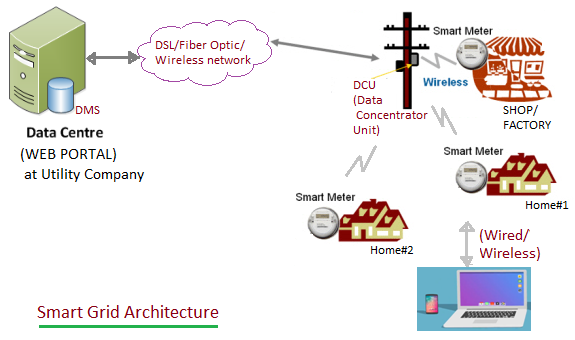Smart Grids: 5 Advantages and Disadvantages
Advertisement
This article explores the pros and cons of smart grids. It highlights the advantages and disadvantages, offering a balanced perspective.
What is a Smart Grid?
Introduction:
The smart grid is essentially an electric grid that’s, well, smarter than traditional grids. It’s designed to detect local changes in power usage and react automatically, all without needing someone to manually intervene.
- It enables two-way communication between the grid and its consumers.
- This allows for real-time information exchange between consumers and utility companies. This means consumers can tailor their energy consumption based on their own preferences, whether it’s price sensitivity or environmental awareness.
- Smart grids are built using modern digital communication technologies.
- The grid communicates with cellular towers to transmit vital parameters like instantaneous power usage, cumulative power consumption, maximum demand, and more.
 Figure 1: Smart Grid Architecture
Figure 1: Smart Grid Architecture
As depicted in Figure 1, a smart grid architecture comprises smart meters, DCUs (Data Concentrator Units), a communication medium (fiber, cellular, DSL), and web servers. A web portal or website is often created to allow for monitoring of the entire smart grid system. The DCU gathers data from individual smart meters, which helps both the electric company and consumers understand power usage and varying load conditions.
Benefits or Advantages of Smart Grids
Here are the key benefits of using a smart grid:
- Reduced Electricity Theft: Smart grids make it more difficult to steal electricity.
- Reduced Electricity Losses: They minimize losses during transmission and distribution.
- Reduced Costs: Overall electricity costs go down, including meter reading, operations & maintenance (O&M), and more.
- Fewer Equipment Failures: Automatic operation based on varying load conditions reduces stress on equipment. Demand-Response also eases strain on assets during peak times, further reducing the likelihood of failure.
- Reduced Outages: Smart grids help reduce sustained outages and the costs associated with restoring power.
- Lower Emissions: They contribute to a greener environment by reducing air emissions of CO2, SOx, NOx, and PM-2.5.
- Reduced Oil Usage and Blackouts: Smart grids improve security by providing continuous power, reducing oil dependency and preventing large-scale blackouts.
- Meeting Increased Demand: Smart grids can handle increased consumer demand without requiring significant new infrastructure.
Drawbacks or Disadvantages of Smart Grids
While smart grids offer numerous advantages, there are also some drawbacks to consider:
- Communication Dependency: Continuous network connectivity is a must for proper operation.
- Network Challenges: During emergencies, network congestion or performance issues can be significant challenges.
- Unreliable Cellular Service: Cellular network providers may not guarantee reliable service during abnormal conditions like wind storms, heavy rain, or lightning.
- Hacking Vulnerabilities: Some smart meters can be hacked, potentially allowing manipulation of power demand.
- Installation Costs: Smart meters are more expensive to install compared to traditional electricity meters.
Advertisement
 RF
RF


